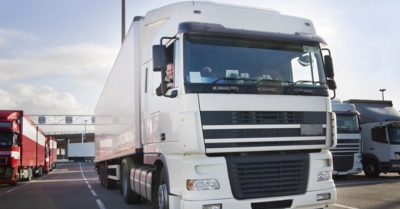Today (Wednesday) regional transport body Midlands Connect has outlined plans for an £800million alternative fuels network, which if installed could create an international centre of excellence for the charging of commercial vehicles with hydrogen and natural gas.
The plans have been released as part of the organisation’s online COP conference, being held today, where a series of Ministers, Metro Mayors, MPs and industry leaders will outline the opportunities and challenges facing the Midlands as it looks to combat climate change.
Midlands Connect’s report, entitled Alternative Fuels: Beyond Fossils suggests that it could cost up to £800million to install the refuelling infrastructure needed to meet the needs of the region’s freight industry by 2040.
The freight and logistics sector faces a challenge to keep pace with market demand and reduce carbon emissions at the same time – only a comprehensive and well-planned network will allow movements to be made efficiently by an alternatively fuelled fleet.
These refuelling sites could be situated within 66 potential locations throughout the Midlands, many of which could grow to accommodate eight or more fuelling stations.
By 2040, Midlands Connect estimates that the HGV fleet in Midlands will require up to 65 hydrogen refuelling stations, and up to 22 natural gas and compressed natural gas refuelling sites with work is now being undertaken to identify which refuelling sites could be prioritised and delivered first.
Midlands Connect is committed to working with local, regional and national stakeholders in the public and private sector to share best practice and ensure an industry-wide shift in focus to allow the timely uptake of renewable fuels to be delivered in a sustainable way.
Commenting on the release of Alternative Fuels: Beyond Fossils report, Midlands Connect Senior Transport Planner Steve Scarrott said:
It’s really important that we support businesses in making the switch to alternative fuels and put the infrastructure in place for them to move away from polluting diesel.
By working with Government to shape policy and accelerate the speed at which these alternative fuelling stations are rolled out, we can ensure that greener vehicles are commercially-viable to run.
There’s a lot of work left to do, but given the industry expertise and history of innovation in the Midlands, I’m confident we can establish ourselves as a centre of excellence and take crucial steps to carbon neutrality.
Read the full press release.
For the latest on our region, subscribe to Midlands Matters, the official newsletter of the Midlands Engine.




